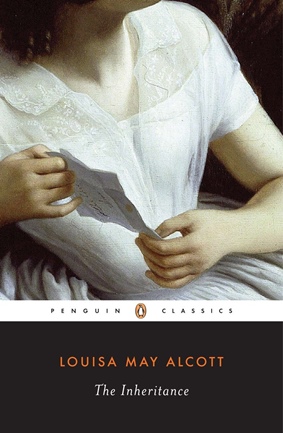Description
Her recently discovered first novel, The Inheritance, written when Alcott was just 17, offers readers a fascinating look at the birth of a remarkable career.
The Inheritance, set in an English country manor, is the story of Edith Adelon, an Italian orphan brought to England by Lord Hamilton as a companion for his children. With a charm reminiscent of Jane Austen's novels, Alcott's plot sets love and courtesy against depravity and dishonor -- and with the help of a secret inheritance, allows virtue to prevail.In their Introduction, Joel Myerson and Daniel Shealy relate their fortuitous discovery of Alcott's manuscript draft of The Inheritance (preserved at the Houghton Library of Harvard). They explore the forces -- both literary and personal -- that shaped the novel, and study how it foreshadowed Alcott's later work.
For more than seventy years, Penguin has been the leading publisher of classic literature in the English-speaking world. With more than 1,700 titles, Penguin Classics represents a global bookshelf of the best works throughout history and across genres and disciplines. Readers trust the series to provide authoritative texts enhanced by introductions and notes by distinguished scholars and contemporary authors, as well as up-to-date translations by award-winning translators.
About the Author
Louisa May Alcott was an American novelist, short story writer, and poet best known for writing the novel Little Women (1868) and its sequels Good Wives (1869), Little Men (1871) and Jo's Boys (1886). Raised in New England by her transcendentalist parents,Abigail May AlcottandAmos Bronson Alcott, she grew up among many well-known intellectuals of the day, includingMargaret Fuller,Ralph Waldo Emerson,Nathaniel Hawthorne,Henry David Thoreau, andHenry Wadsworth Longfellow.Alcott's family suffered from financial difficulties, and while she worked to help support the family from an early age, she also sought an outlet in writing. She began to receive critical success for her writing in the 1860s. Early in her career, she sometimes used pen names such asA.M. Barnard, under which she wrote lurid short stories and sensation novels for adults that focused on passion and revenge.Published in 1868, Little Women is set in the Alcott family home, Orchard House, in Concord, Massachusetts, and is loosely based on Alcott's childhood experiences with her three sisters,Abigail May Alcott Nieriker, Elizabeth Sewall Alcott, andAnna Bronson Alcott Pratt. The novel was well-received at the time and is still popular today among both children and adults. It has been adapted for stage plays, films, and television many times.Alcott was an abolitionist and a feminist and remained unmarried throughout her life. She also spent her life active in reform movements such as temperance and women's suffrage. She died from a stroke in Boston on March 6, 1888, just two days after her father's death.
